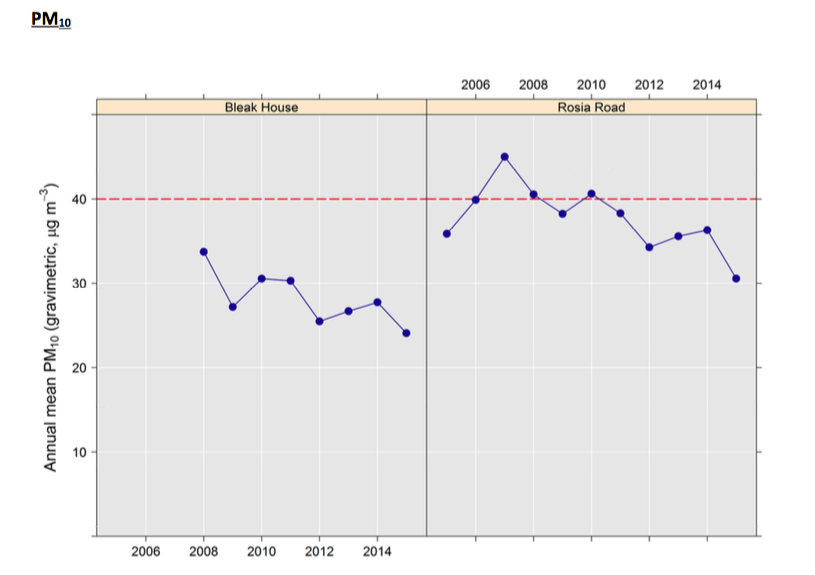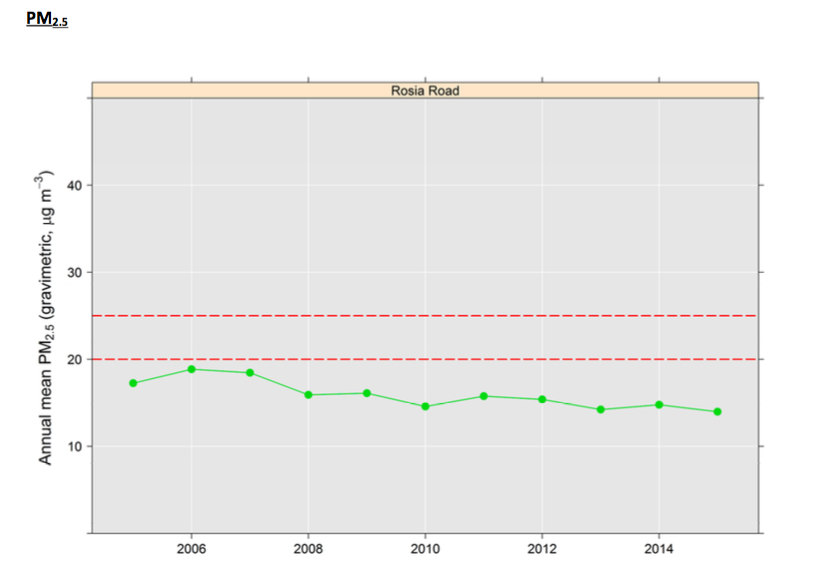Because of its concerns at the pollution levels it inherited, Government says 'it has been working hard, since elected at the end of 2011, to improve air quality in Gibraltar. Its data show that pollution levels have in fact been decreasing in that time. The GSD Opposition’s Trevor Hammond’s “deep concern” is amusing given that the data used by WHO is from 2008 to 2013, therefore mainly from his party’s term in Government.'
'The most significant consideration', they say, 'is that the WHO report is based on 2008-2013 data which does not represent Gibraltar’s current situation for particulate matter. That period included several years where wind blown dusts from unmade land near the monitoring station and construction activity also nearby both affected measurements, and went unchecked by that administration. These sources were directly addressed by Government policy via the Air Quality Action Plan which contained several far reaching PM10 focussed measures, which have now been implemented.'
Govt claim that 'the most successful measure has been the control of fugitive dust from construction activities which has been incorporated into the Dust Best Practice Guide https://www.gibraltar.gov.gi/new/sites/default/files/HMGoG_Documents/Dust_Best_Practice_Guide.p df) and the Control of Dust Regulations 2010. These are now actually enforced by the Environmental Agency and failure to comply results in financial penalties. The Plan also includes rigorous street cleaning activities (wetted sweeping and jet washing) and land use management (to reduce the area of unmade land acting as a source of wind blown dust). Air quality measures, now and in the future, focussed on NOX emissions are expected to have co-benefits in further reducing particulate matter in both size fractions.
The impact has been a significant decline in concentrations since 2013 – a trend that is continuing across both PM10 and PM2.5. This is clearly shown in the graphs below, all of which show downward trends, especially since 2011.


The data show that PM10 has been compliant with the European Commission’s Health Limit Value since 2011 and PM2.5 (the more health significant size fraction) has been compliant since measurements began, with both size fractions continuing to decline.
The WHO standards for both fractions are more stringent than the EU standards and are challenging for many locations across the UK – in 2014 almost 20% of PM10 stations and almost 75% of PM2,.5 stations exceeded the WHO standards. Nevertheless, Government continues to work to reduce anthropogenic sources of particulate matter, for example through the planned use of cleaner fuel in the new power station and measures to reduce road traffic.
There are factors that will be contributing to Gibraltar air quality that are outside Gibraltar's control. Some of these will be sources of pollution elsewhere in the Bay. Significantly, due to Gibraltar’s geographical proximity to North Africa and the Atlantic Ocean it experiences a significant level of natural particle contributions from Saharan dust and sea salt. It is therefore neither useful nor meaningful to compare the results for London and Gibraltar.
Dr John Cortes, Minister for the Environment and Climate Change, stated, “We live in an area blessed with amazing natural history, but also surrounded with heavy, land and marine-based industry. Many of the more serious sources of pollution are outside our direct control, but our data show that we are nevertheless making great progress in improving our air quality. Our energy strategy – and no other Gibraltar Government has had one in the past – heading towards natural gas, solar and marine energy, and our incentives towards hybrid and electric vehicles, are proof of that.
Trevor Hammond’s GSD just six months ago wanted to sell a polluting diesel power station again to the electorate as their preferred source of electricity! Happily our electorate, wise that is always is, resoundingly rejected their dangerous offer. It makes me laugh to see Trevor Hammond expressing concern about our air pollution and its effects on health, when his party was responsible both for the high readings reported by the WHO, and for wanting to bring that polluting technology back to Gibraltar. He is either being cheeky with the electorate or does not really know much about the environment.”
PM10 was high across that particular period. Government has implemented policy interventions that have improved air quality and continue to do so. Further measures will see further declines in PM concentrations. Gibraltar is compliant with European health based legal requirements and Government is continually seeking further improvements.'

